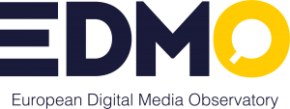In response to the war in Ukraine, the European Digital Media Observatory (EDMO) established a taskforce to understand disinformation trends, and issued a public call for information on media literacy initiatives during spring 2022. The results of the mapping are now available.
A fairly diverse range of organisations became involved in media literacy initiatives in response to the war, including universities, news and public service media, educators and librarians, national and international NGOs, and some specialist media literacy organisations. Working in partnership also was also a feature of some projects while others were government-backed and funded.
Nearly half of all the initiatives targeted the general public. Second most common were initiatives for educators and parents, with children or students likely to be secondary beneficiaries.
Geographically, the media literacy initiatives looked came from countries geographically close to the war: e.g., Bulgaria, Croatia, Czech Republic, Estonia, Finland, Lithuania. Countries with an established tradition of media literacy organisations, policy and funding also featured: e.g., Belgium, Denmark, Ireland, Netherlands, Portugal.
Although from a pedagogical point of view, in person meetings, awareness-raising or discussions are likely to be most effective, just a handful of media literacy initiatives looked at relied on these methods.
“Rapid responses to crisis and conflict are demanding but necessary. At such times, the public searches for information about what is happening, and needs reliable guidance on where to look, what to trust and how to judge. Equally vital, media literacy efforts are required in ‘normal times’ to sustain and enhance learning, build resilience to disinformation and anticipate future needs by ensuring people know where to turn.”
Prof. Sonia Livingstone
Recommendations from the study include:
- Media literacy organisations must be ready at all times to mount a rapid, scalable and robust response to disinformation crises;
- Strong European coordination of media literacy initiatives, including the sharing and evaluation of valuable resources and effective good practice;
- Resources to ensure that media literacy initiatives reach the majority of the general public, rather than just sitting on an organisational website, especially the more susceptible or at-risk groups likely to be disproportionately adversely affected by the spread of disinformation.
